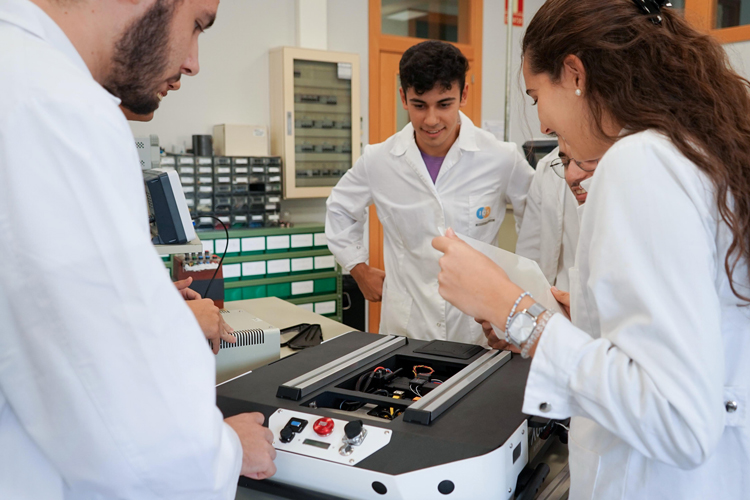IQS Engineering Students Participate in the Social Tech Challenge

The Jesuit universities IQS, Deusto, Pontifica Comillas, and Loyola Andalusia are collaborating on the 1st ever edition of the UNIJES Social Tech Challenge, a competition for engineering students who are tasked with designing and manufacturing an autonomous wheelchair that enables people with reduced mobility to enjoy visiting a museum.

The Jesuit universities IQS, Deusto, Pontifica Comillas, and Loyola Andalusia are collaborating on the 1st ever edition of the UNIJES Social Tech Challenge, a competition for engineering students who are tasked with designing and manufacturing an autonomous wheelchair that enables people with reduced mobility to enjoy visiting a museum.
Combining engineering and technology to create a positive impact on society is the main objective of this unique challenge, which seeks to encourage creativity and support innovative projects with a purpose. With that in mind, an autonomous wheelchair project was chosen as it is a key technological solution that can help improve quality of life and provide independence and comfort for people who wish to visit a museum. In addition, the development of this technology also opens up a range of possibilities in the health and medical care sectors.
The idea is that the teams from the four universities will develop innovative and functional prototypes that are able to meet the technical specifications and real needs of the users. Each of the universities will be represented by a team of up to six engineering students. One of the characteristics of these groups is their multidisciplinary approach, as they will be formed by students in different undergraduate and master's degree programmes in engineering, which will foster a diversity of perspectives and a more comprehensive approach.
Designing an autonomous wheelchair involves many fields within engineering. An accurate and robust control system must be crafted, including sensors to detect obstacles and avoid collisions, along with making an ergonomic design to ensure comfort and safety. This task will enhance the development and use of teamwork skills as each participant will apply knowledge from their field, whether programming, designing, mechanics, environmental assessments, or ensuring the viability of the project.
The Social Tech Challenge lasts for one full year, a period in which the participants will put everything they have learned in their different Faculties of Engineering to the test. In addition to their talent and ability to create a comprehensive and multifaceted solution that has a real and lasting impact, the competition will highlight the creativity, functionality, efficiency, usability, and accessibility of the designs.
The start date of the challenge is 1 October, with a presentation by each UNIJES university of its team. This will be followed by two months of training seminars, then in February the teams will present a preliminary report.
The prototype must be completed in June, shortly before the final event which will be held on 20 and 21 June at the University of Deusto. During the event, the teams must defend their prototypes and explain their design process, the challenges they encountered and overcame, and the functionalities of their autonomous wheelchairs. In addition, the teams will also have to test the autonomous wheelchair and demonstrate its functionality, effectiveness, and safety.









